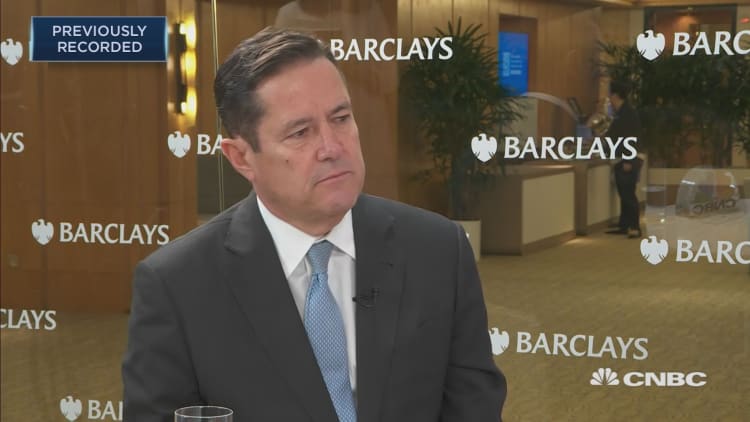
Companies around the world need to focus on the economics of supply chains amid uncertainties such as the U.S.-China trade dispute and Brexit — the U.K.'s exit from the European Union trade bloc, said the CEO of Barclays bank.
"Whether it's Brexit or whether it's the trade challenge between the U.S. and China, the real issue is supply chain," Jes Staley told CNBC at the Barclays Asia Forum.
Companies are grappling with the fallout of both events as it impacts the cost of shipping physical goods and service delivery.
"As we globalize the world's economy, supply chains are (the) mathematics of becoming a critical part of utilizing the most efficient assets irrespective of what country they are in," said Staley.
"For sure, the exchange between China and the U.S., I think, has thrown a question into the sustainability or stability of supply chains in the future and strategically, all companies need to be taking a look at how should they manage their supply chains," Staley added.
The British bank said in the aftermath of the Brexit referendum that it would expand its Irish subsidiary to continue its European trade.
"We are not going to reverse that," said Staley. "The re-evaluation of supply chain economics is something that's going to last for quite a period of time."

